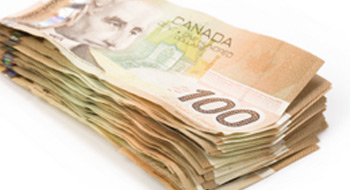

The new Liberal government says the federal books passed down from the Conservatives are on track to drive the country billions of dollars deeper in the hole than expected.
But Finance Minister Bill Morneau maintained Friday that the government will fulfill its pledge to balance the books before the next election despite the weaker economic environment and the steeper fiscal obstacles.
To get there, the government will have to contend with an updated fiscal baseline about $6 billion lower per year than the forecasts contained in the Conservatives’ April budget.
For example, the $2.4-billion surplus for 2015-16 — including the $1 billion set aside for contingencies — projected in April by the Tories is now expected to be a $3-billion deficit.
The Finance Department’s latest figures, released Friday, do not account for the big-ticket spending promises in the Liberal platform, nor do they factor in the potential benefits the government expects from its plan to roll out stimulus such as infrastructure.
The Liberals have vowed to run annual deficits of just under $10 billion over the next two years with a shortfall of about $5.7 billion in the third year.
Read: Bill Morneau’s journey from HR to Ottawa
“These are the fiscal projections inherited by this government,” the departmental document said.
The government noted that economic conditions have deteriorated since the April budget because of higher expenses and lower revenues tied in part to stubbornly low commodity prices, global uncertainty and the very weak performance by the United States economy to start the year.
“Risks to the Canadian outlook remain tilted to the downside,” the update said, adding that monthly economic growth has picked up again in recent months after a contraction over the first two quarters of 2015, which is considered a technical recession.
The update, the first since the Liberals won power last month, also contains average forecasts made last month by private-sector economists.
The economists downgraded the April projections for real gross domestic product — the common measure of economic growth — to an average of 1.9% from 2015 to 2019, from 2.1%.
They also lowered their predictions for crude oil prices to an average of US$61 per barrel from 2015 to 2019, from US$70.
